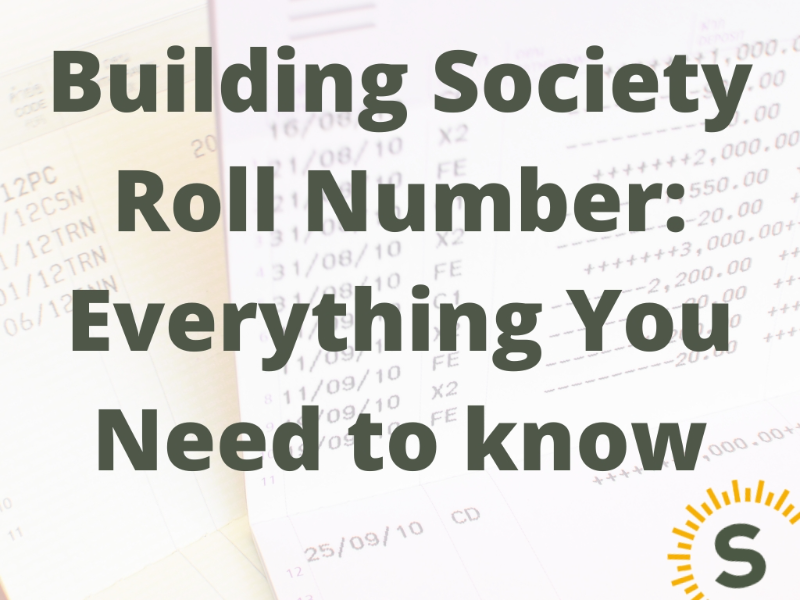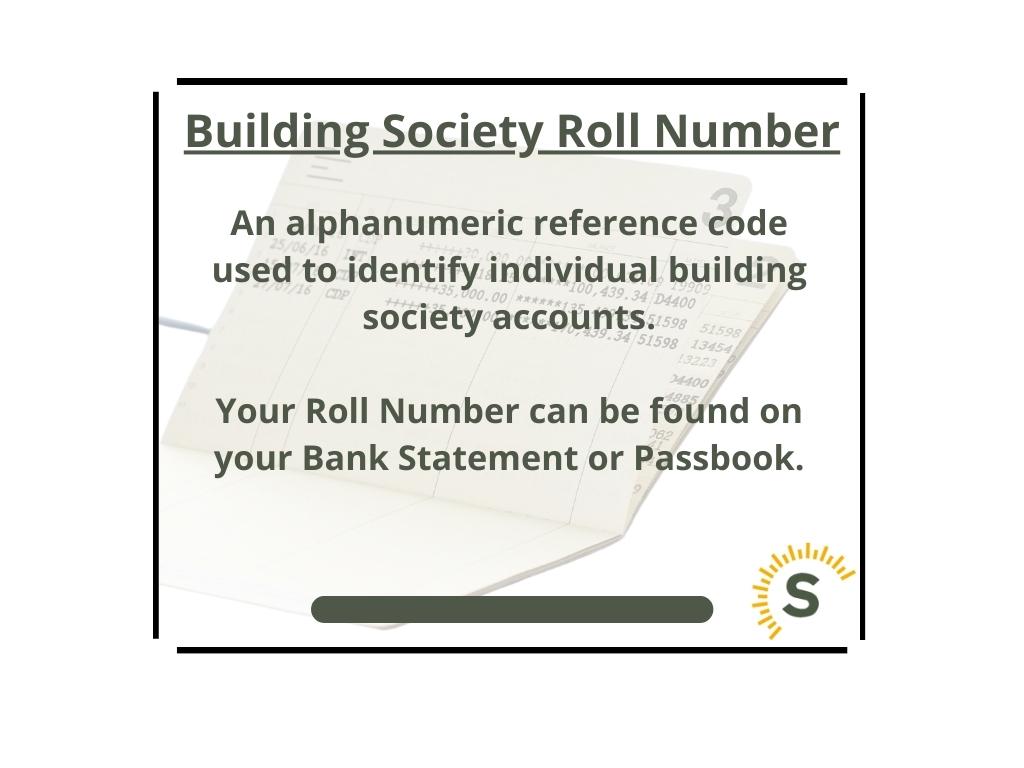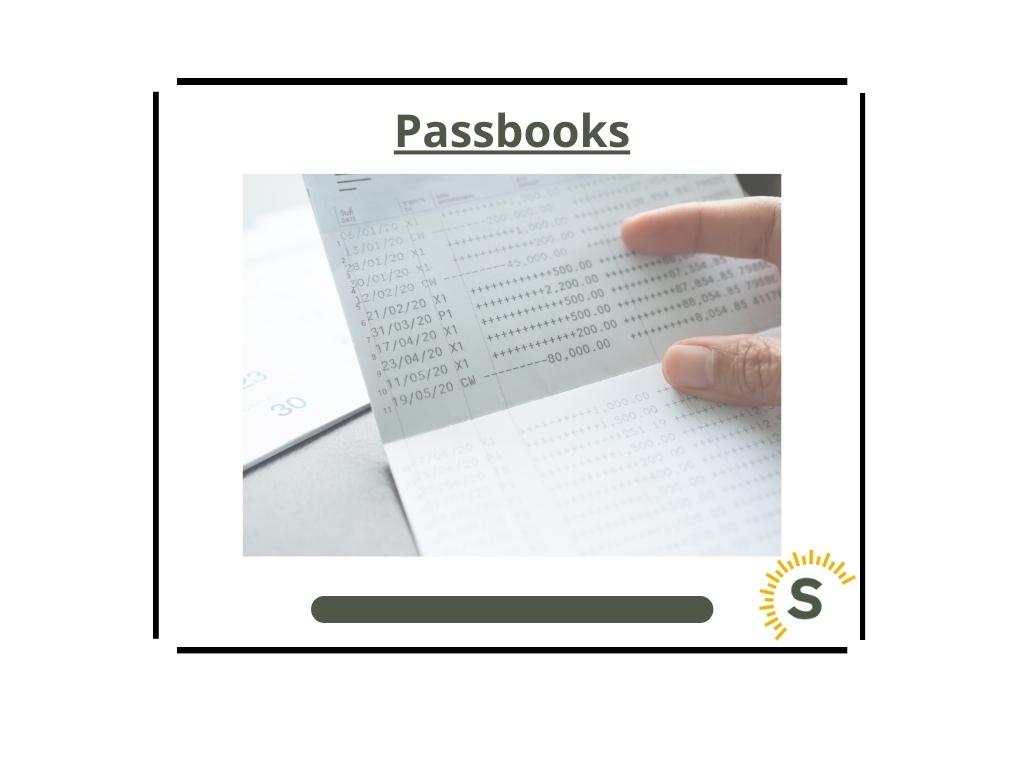
When it comes to managing your finances, understanding the intricacies of banking systems is crucial. One such element that may come up is the building society roll number. While this term may sound unfamiliar to some, it plays a significant role in identifying individual building society accounts.
In this insight, we will delve into the world of building society roll numbers, exploring what they are, how they differ from banks, where to find them, and how misuse can cost you dearly. So, let's get started.
To grasp the concept of a building society roll number, it's essential to first understand what a building society is. A building society is a financial institution that provides a range of banking services to its members.
Unlike traditional banks, building societies operate on the principle of mutuality, which means they are owned by their members. This ownership structure ensures that members have a say in how the institution is run and share in its profits.
Now that we have a basic understanding of building societies let's explore the building society roll number. A building society roll number is an alphanumeric reference code used to identify individual building society accounts.
While most people are familiar with the standard account number and sort code system used by banks, building societies may also use roll numbers as an additional means of identification.
The roll number is typically a combination of letters and numbers and can range from 10 to 18 characters in length. It serves as a unique identifier for the account holder and is crucial when making payments into a building society account.

Locating your building society roll number is essential if you want to ensure the smooth processing of payments. Here are some ways you can find your roll number:
Your roll number can often be found on your account statements or any original documentation provided by the building society when you opened your account. Take a look through your paperwork to see if it is listed there.
Historically, building societies used to provide clients with a Passbook. The passbook is a book of transaction entries.
When you entered a branch and withdrew money, you would need to take your passbook with you to be updated. Your Roll number will be printed into your Passbook when you open your account.
If you are unable to find your roll number through your statements or documentation, the best course of action is to contact your building society directly. Reach out to their customer service team either over the phone or by visiting your nearest branch.
They will be able to assist you in retrieving your roll number. Remember, only the account holder can make this enquiry, as it is essential to maintain account security.
Many building societies now offer online banking services, where you can access your account information and details. Log in to your online account or banking app and navigate to the account information section. Here, you may find your roll number listed.
Now that you have located your building society roll number, it's important to understand how to use it correctly. When making a payment to a building society account, you must quote the roll number as the reference. This ensures that the money is allocated to the correct account.
It's crucial to note that you should not include any additional characters or information in the payment reference field.
Using the roll number correctly is essential to avoid any payment processing errors and ensure the funds reach the intended account smoothly.
Building societies use roll numbers as an additional means of identification for several reasons:
Roll numbers have a long history in the operations of building societies. In the past, building societies used physical passbooks for account holders to track their transactions. Roll numbers were printed in these passbooks as a way to uniquely identify each account.
Even as technology advanced and passbooks became less common, the practice of using roll numbers persisted.
Building societies may have multiple branches and offer various types of accounts and services. Roll numbers provide a way for the building society's internal systems to differentiate individual accounts and ensure accurate and efficient record-keeping.
When making payments to a building society account, using the correct roll number as a reference is crucial. It helps the building society's payment processing systems direct funds to the correct account, minimising the risk of errors or misallocation.
As building societies are mutual institutions owned by their members, using a roll number system can reinforce a sense of membership and community. The roll number becomes a unique identifier for each member's account within the building society's network.
While building societies and banks offer similar financial services, there are some key differences between the two. Here are a few points to consider:
Building societies are owned by their members, while banks are typically owned by shareholders. This distinction means that building society members have a say in how the institution is operated and share in its profits.
Building societies often prioritise customer service and maintaining strong relationships with their members. As they are not driven by profit margins for shareholders, they can offer more personalised and tailored services to their customers.
Building societies tend to specialise in mortgage lending and demand-deposit accounts. However, they also offer traditional retail services such as current and savings accounts, credit cards, and personal loans.
Traditional banks do not have a roll number system. The concept of a roll number is specific to building societies, and it is not used by standard banks. In banking systems, each account held at a bank is typically identified by a unique account number, which is used for various transactions such as deposits, withdrawals, and transfers.

No, a roll number is not the same as an account number. While both serve as identifiers for individual accounts, they are distinct reference codes used by different types of financial institutions.
An account number is a unique set of numbers assigned to a specific account held at a financial institution, such as a bank or building society. It identifies the account itself and is used for various transactions, including deposits, withdrawals, and transfers.
Account numbers are typically used by traditional banks and are a standard means of identification in the banking system.
The roll number serves a similar purpose to an account number within the building society's internal systems. It helps differentiate individual accounts and facilitates smooth payment processing within the specific building society network.
Revolut is a popular British financial technology company that offers international money transfers with competitive exchange rates. They have a user-friendly app that allows you to send money to other Revolut users instantly using just their phone number or email address. They also offer free currency conversions up to a certain limit.
Monzo is a digital bank in the UK that provides easy money transfers to other Monzo account holders. You can send money using just the recipient's phone number, and the transfer is usually instantaneous. Monzo also offers features like bill splitting, making it convenient for shared expenses.
Both Revolut and Monzo are good alternatives for UK based spending and also offer a lot of advantages when spending abroad.
PayPal is a widely recognised digital wallet that operates in multiple countries, including the UK. It enables you to send money to anyone with an email address or phone number. The recipient can then withdraw the funds to their linked bank account or use them for online purchases.
In addition to the balance transfer option mentioned earlier, Wise also offers bank transfers that can be sent directly to the recipient's bank account with competitive exchange rates and low fees. Wise's peer-to-peer system makes it efficient for international transfers.
Using your building society roll number incorrectly can have serious financial consequences. If you make a mistake with inputting, you could end up facing unexpected charges, delays in transactions, or even losing money.
A wrong digit could cause your money to go to the wrong place! To avoid these issues, it's important to know exactly how to use your building society roll number for different tasks. Making sure you input it correctly can save you from headaches and financial troubles down the road.
Barclays does not have a building society roll number as it is not a building society. Barclays is a British multinational bank, and building societies are separate financial institutions in the UK. Santander uses sort codes and account numbers in replace of a roll number.
If you have been asked to provide a barclays building society roll number, you can leave the box empty as long as you have populated the sort code and account number field.
Santander does not have a building society roll number either, as it is also a bank, not a building society. Building societies are distinct entities from banks in the UK's financial sector. Santander uses sort codes and account numbers in replace of a roll number.
If you have been asked to provide a santander building society roll number, you can leave the box empty as long as you have populated the sort code and account number field.
Understanding the ins and outs of building society roll numbers is essential for anyone who holds a building society account or needs to make payments to such accounts. By familiarising yourself with this unique identifier, you can ensure the smooth processing of transactions and avoid any unnecessary complications.
Remember to locate your roll number through statements, documentation, or by contacting your building society directly. Utilise it correctly when making payments, and consider alternative methods if a roll number is not available or preferred. With this knowledge in hand, you can confidently navigate the world of building societies and make informed financial decisions.
Read More:

Stuart is an expert in Property, Money, Banking & Finance, having worked in retail and investment banking for 10+ years before founding Sunny Avenue. Stuart has spent his career studying finance. He holds qualifications in financial studies, mortgage advice & practice, banking operations, dealing & financial markets, derivatives, securities & investments.





Our website offers information about financial products such as investing, savings, equity release, mortgages, and insurance. None of the information on Sunny Avenue constitutes personal advice. Sunny Avenue does not offer any of these services directly and we only act as a directory service to connect you to the experts. If you require further information to proceed you will need to request advice, for example from the financial advisers listed. If you decide to invest, read the important investment notes provided first, decide how to proceed on your own basis, and remember that investments can go up and down in value, so you could get back less than you put in.
Think carefully before securing debts against your home. A mortgage is a loan secured on your home, which you could lose if you do not keep up your mortgage payments. Check that any mortgage will meet your needs if you want to move or sell your home or you want your family to inherit it. If you are in any doubt, seek independent advice.